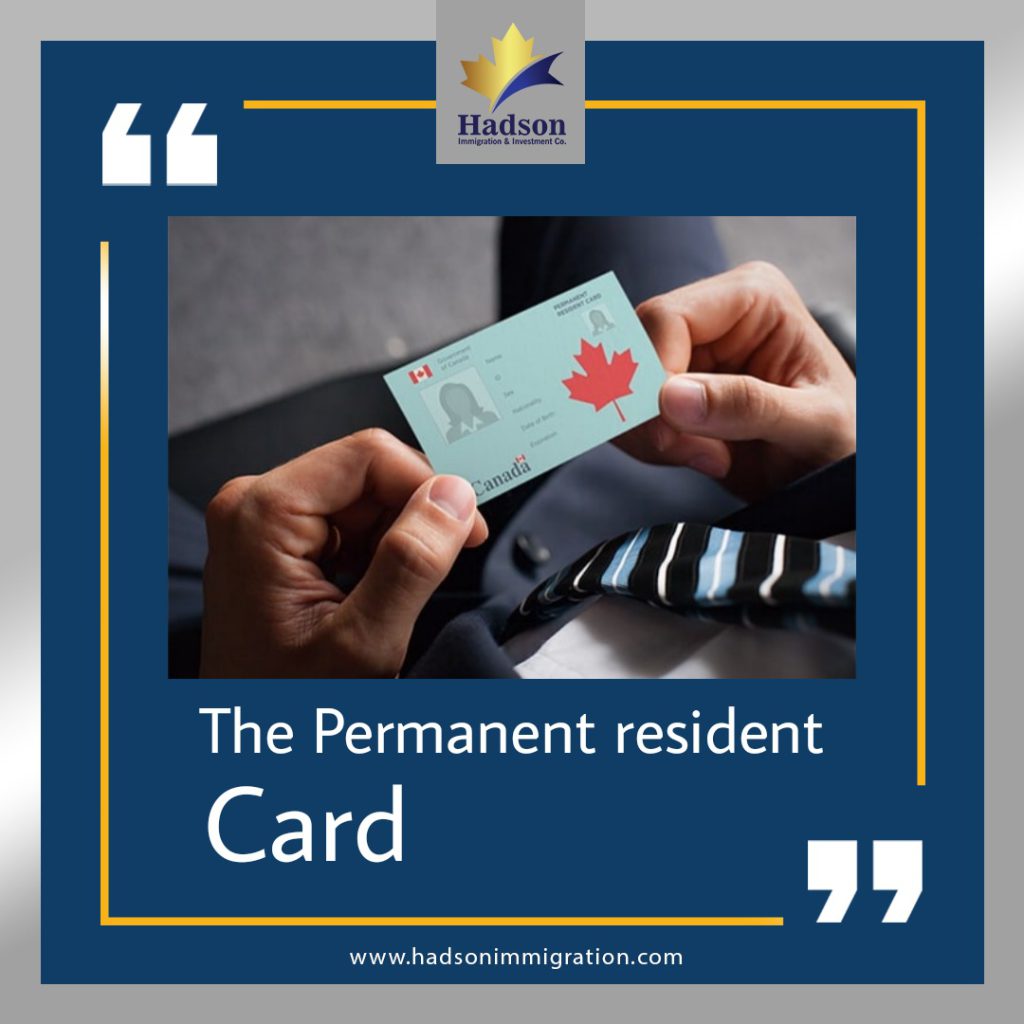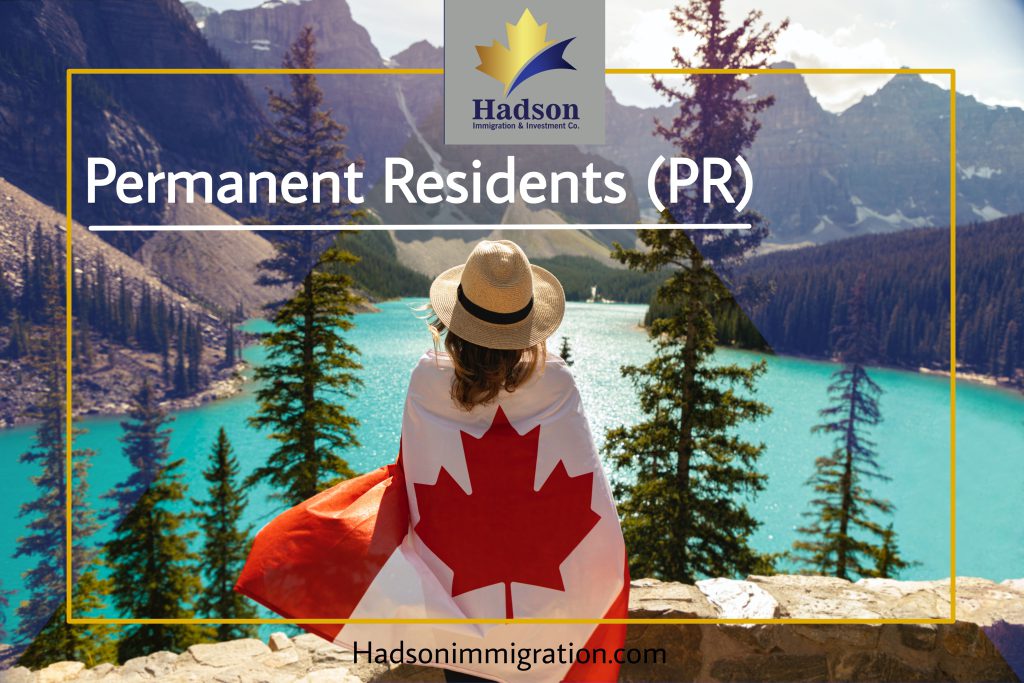What is Permanent Residence?
Permanent Residence or PR is a status under which you may live and work in Canada for as long as you wish. Yes, you can live your entire life as a PR!
A permanent resident is someone who has been given permanent resident status by immigrating to Canada, but is not a Canadian citizen. Permanent residents are citizens of other countries.
When you are a permanent resident, you can live outside of Canada, but must live in Canada for at least two years in a five-year period.
It is different from temporary residence such as a visitor visa (also known as tourist visa), a student visa or a work permit because all of these statuses have an expiry date and hence are temporary permits to reside in the country. So a PR is comparable to what a “Green card” is in the United States.
The permanent resident (PR) Card
Your PR card can be used to show that you have permanent resident status in Canada. If you travel outside Canada, you will need to show your card and your passport when you come back on a commercial vehicle, like an airplane, boat, train or bus.
PRs traveling outside Canada who do not have a valid PR card, or who are not carrying it, need to apply for a permanent resident travel document before returning to Canada by commercial vehicle.
Permanent residents (PRs) of Canada must carry and present their valid PR card or permanent resident travel document (PRTD) when boarding a flight to Canada, or travelling to Canada on any other commercial carrier.
If you do not carry your PR card or PRTD, you may not be able to board your flight, train, bus or boat to Canada.

Times Can Lived in Canada
To keep your permanent resident status, you must have been in Canada for at least 730 days during the last five years.
These 730 days don’t need to be continuous. Some of your time abroad may count towards the 730 days. See what time abroad counts towards your permanent resident status.
To help you track your time in Canada, ways to know how long you’ve been in Canada:
- Ask a Canadian border officer when you enter Canada.
- Apply for or renew your PR card. We will tell you if you’re eligible
permanent residents can’t do
You are not allowed to:
- vote or run for political office,
- hold some jobs that need a high-level security clearance
permanent residents can do
As a permanent resident, you have the right to:
- get most social benefits that Canadian citizens receive, including health care coverage,
- live, work or study anywhere in Canada,
- apply for Canadian citizenship,
- protection under Canadian law and the Canadian Charter of Rights and Freedoms.
You must pay taxes and respect all Canadian laws at the federal, provincial and municipal levels.
🔴 Someone who makes a refugee claim in Canada does not become a permanent resident at that time. To become one, the Immigration and Refugee Board must first approve their claim. Then, they must apply for and get permanent resident status.
When you become a permanent resident of Canada, your citizenship does not change automatically. You are still a citizen of your country of origin.
Every permanent resident has the right to apply for citizenship after spending a certain amount of time in Canada. Permanent residents are citizens of other countries.
A person in Canada temporarily, like a student or foreign worker, is not a permanent resident.
What permanent residents can do. As a permanent resident, you have the right to: get most social benefits that Canadian citizens receive, including health care coverage, live, work or study anywhere in Canada, apply for Canadian citizenship, protection under Canadian law and the Canadian Charter of Rights and Freedoms.
We’ve selected the 3 easiest Canadian immigration programs to set you on the path to starting a new life in one of the most diverse and multicultural countries worldwide. Our Top 3 ways to get permanent residency in Canada include:
1. The Express Entry System
2. The Provincial Nominee Program
3. Family Sponsorship
This is our short guide to studying in Canada as a permanent resident. Here’s the big difference between studying in Canada as a permanent resident and studying as an international student: as a permanent resident, you pay the same low tuition rates as Canadian citizens.
No, but studying in Canada can open up the doors to permanent residency. All students who have completed at least an eight-month study program at a Designated Learning Institution (DLI) may be eligible to apply to stay and work in Canada through programs like the Post Graduate Work Permit Programs (PGWPP).
You need a valid permanent resident (PR) card to return to Canada by plane, train, bus or boat. If you know your card will expire when you’re travelling, renew it before you leave. You can only renew your card in Canada. We don’t send PR cards to non-Canadian addresses and we don’t allow third parties to get them for you.
If you’re outside Canada and don’t have a valid PR card, you need a permanent resident travel document (PRTD) to return to Canada. You can only apply for a PRTD from outside Canada. If you try to return to Canada without a PR card or PRTD, you may not be able to take your flight, train, bus or boat to Canada.
You can check current processing times for permanent resident cards (PR cards).
If you need your card sooner, you can apply for urgent processing. If you aren’t eligible, we will process your application normally.
You need a valid permanent resident (PR) card to return to Canada by plane, train, bus or boat. If you know your card will expire when you’re travelling, renew it before you leave. You can only renew your card in Canada. We don’t send PR cards to non-Canadian addresses and we don’t allow third parties to get them for you.
It is possible to apply for both temporary (work and study) and permanent residence in Canada – this is called dual intent. Dual intent allows students to apply for permanent residence, while at the same time securing their temporary study permit.








Pingback: Ontario Entrepreneur stream - Hadson Immigration - Ontario Entrepreneur